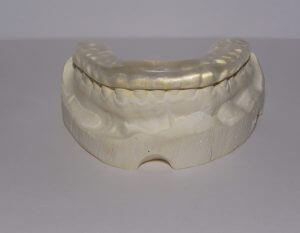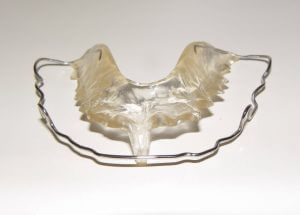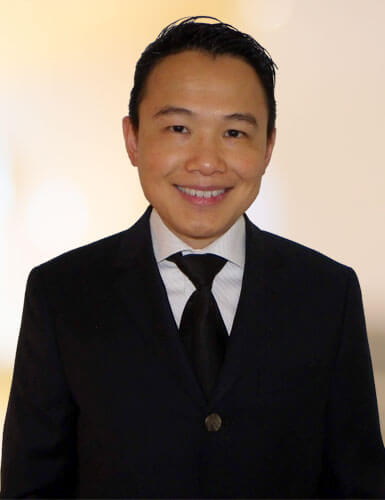Night guards, oral appliances and your jaws! Or, how I learned to stop grinding and start deprogramming.
Posted: May 14, 2016
Last Modified: June 6, 2022
“My dentist told me I grind my teeth” is a common phrase overheard with the subtext “but I don’t think I do”. So why are you wearing night guards?
If you know that you are a tooth grinder, and you have been tested and are free of sleep apnea, by all means wear your night guard. The grinding is a brain-mediated habit that cannot be changed. This seems to be unrelated to stress, your bite or other causes, and unless your teeth are protected, you will end up grinding your teeth down to stubs.

(Personal training bias here):
However, a substantial proportion of “grinders” are in fact people whose bites are off. If you are unaware of nighttime grinding, or you have never been told that you grind (or if you freakily take video of yourself while you sleep for some weird reason-and-you-just-keep-that-
Then if your grinding is not during sleep, when ARE the teeth wearing down? The answer may be: with every chewing motion of your jaw.
In a normal jaw, the chewing motion should be up and down. People are “supposed to be rat-chewers, not cow-chewers”.
The answer to the question is in jaw alignment. If your jaw alignment is off or there is friction when teeth contact, it will chew more like a cow, and it is that type of lateral movement that causes the wear on teeth. Every time you chew, without you even knowing it. This type of tooth wear is a silent phenomenon. Think wheel alignment on your car.
So how does your jaw alignment get thrown off?
If you notice these things about your bite, your teeth may be the culprit. The way they close together may be guiding your jaw to a place that your jaws do not perceive as “on-centre”:
– do you notice that you have more than one bite?
– do you notice that you need to squeeze your teeth together to get them to fit properly?
– do you notice that you prefer to hold your jaw in a position other than your normal bite position?
– do you feel that your bite “just doesn’t feel right”?
– do you feel that there is a tooth getting in the way of comfortable jaw closure?
– do you feel that your bite is different when you wake up, but then re-sets itself after a while?
– have you broken teeth that did not have large fillings while chewing food?
– do you have jaw pain while chewing hard or very chewy foods (tough breads, raw carrots, granola, for example)?
A “yes” answer to any of these questions could signify a bite problem.
The solution? Our approach is to provide people with a simple retainer-like appliance that is worn for a few weeks. This appliance allows your jaw to find a comfortable resting spot, and when that spot is found, the treatment is to modify your bite to re-create that bite position. Treatment may range from orthodontics, to bite adjustment, to more involved bite reconstruction.

If you think your bite is off, or your bite is just not comfortable, or you would just like a complete oral evaluation, please contact us! We’d love to be your dentist in Barrie.


